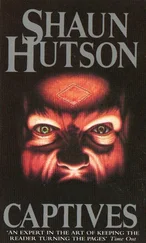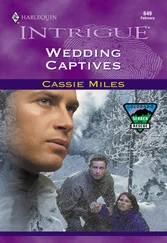Norman Manea - Captives
Здесь есть возможность читать онлайн «Norman Manea - Captives» весь текст электронной книги совершенно бесплатно (целиком полную версию без сокращений). В некоторых случаях можно слушать аудио, скачать через торрент в формате fb2 и присутствует краткое содержание. Год выпуска: 2014, Издательство: New Directions, Жанр: Современная проза, на английском языке. Описание произведения, (предисловие) а так же отзывы посетителей доступны на портале библиотеки ЛибКат.
- Название:Captives
- Автор:
- Издательство:New Directions
- Жанр:
- Год:2014
- ISBN:нет данных
- Рейтинг книги:3 / 5. Голосов: 1
-
Избранное:Добавить в избранное
- Отзывы:
-
Ваша оценка:
- 60
- 1
- 2
- 3
- 4
- 5
Captives: краткое содержание, описание и аннотация
Предлагаем к чтению аннотацию, описание, краткое содержание или предисловие (зависит от того, что написал сам автор книги «Captives»). Если вы не нашли необходимую информацию о книге — напишите в комментариях, мы постараемся отыскать её.
Captives
This is a moving account of a country shaken by communism and anti-Semitism and haunted by recent atrocities, from "a distinguished writer whose vision of totalitarianism is close to Kafka's cloudy menace, universal yet internalized" (Richard Eder,
).
Captives — читать онлайн бесплатно полную книгу (весь текст) целиком
Ниже представлен текст книги, разбитый по страницам. Система сохранения места последней прочитанной страницы, позволяет с удобством читать онлайн бесплатно книгу «Captives», без необходимости каждый раз заново искать на чём Вы остановились. Поставьте закладку, и сможете в любой момент перейти на страницу, на которой закончили чтение.
Интервал:
Закладка:
They may have perceived my openness toward them despite the inconsistency of my behavior. Otherwise, Sebastian Caba, who lived with them the whole time in the school’s dormitory, wouldn’t have listened to me as peacefully as he had when I told him I’d visited the salt mine where his father worked. Pale and worried, Caba would have cornered me with all the questions he could have stammered out: how the mine looked, how long I stayed there, what they said to me, if I’d met his father. He should have pestered me with all kinds of sly questions to clarify whether I knew the one thing he was trying to keep secret. He had heard how I talked to the history teacher. He saw how Laurenţiu Sofronie, the former landowner, wisely acquiesced, bowing his old shoulders. He should have been frightened by these warnings. Yet, in the middle of his first winter among us, he had asked if he could join our organization. He had seen right through me. And he ignored the fact that I had waited until the eleventh hour to receive his truth or anxiety or contrition.
• • •
Caba was a mediocre student but liked by his classmates, and his father was now part of the working class; no one had any reason to keep him out of the organization. On the contrary, he represented a rare acquisition, bearing in mind that most of the students came from peasant backgrounds: we would finally have a member from the working-class.
I expected a visit from him every day. I followed him. I watched over his every move. I answered him dryly and treated him rudely to disarm him, so he would have to ask for forgiveness, confess. I counted the days until the meeting. It was a frosty winter. Thursday afternoon the organization would receive new members from each class. The snow had frozen and crunched under foot. Night fell rapidly, a couple hours after we returned from school. I was alone with Donca. I remember everything that happened then, at the end of the first January that Caba lived among us. I had memory back then. I was powerful. People like Sebastian Caba should have feared me. So the new order demanded. I was expecting him to knock shyly on the window, ask for mercy, kneel in the snow to confess the truth, and withdraw to his destined place.
The window was iced over. Steps could be heard, but no one tapped on the glass. Convinced he would finally appear, I waited for almost two hours, looking at the frosty flowers and leaves covering the white field of the window. I couldn’t stay in one place anymore; I had to do something to make the time to pass until I could welcome my classmate Caba, until I could listen to him with amazement and send him away — expel the disgusting, cunning Sebastian Caba!
I opened the book that the distinguished lady had lent me. Time has an objective reality, even when objective sensation is weakened or eradicated because time “presses on,” because it “flows.” It remains a problem for professional logicians. . and again, one day, emboldened by youthful presumption, Hans Castorp tried to address the same problem. . to know if a hermetically sealed can sitting on a shelf is outside time or not. But we know too well that time accomplishes its work even on one who sleeps. A certain doctor mentions the case of a little girl, aged twelve, who fell asleep one day and continued to sleep for thirteen years. In this interval, though, she did not remain a little girl but rather awoke a young woman, for she had grown in the meantime. I looked at the little seven year old girl. She was fat, a little balloon, with yellow hair and blue eyes. She had grown. She wasn’t the same child. She had Mama’s eyes and hair. Her first three children didn’t resemble her. We were dark and tall. Dona’s hair and eyes were black as night. She was slender, tall, almost transparent, but years had gone by and. Dona had become Donca, and she was small now, and fat, and she had blue eyes.
Still, I thought, Donca isn’t Dona. It’s not possible that Dona could have become fat and blond. And Eva had Father’s eyes and hair. It’s not possible that time fulfilled its work on those who slept. It’s not possible that Eva could have acquired eyes clean as a summer’s day and long hair, golden as summer wheat. It’s not possible that time flowed through Dona’s and Eva’s sleep, while I should have been a hermetically sealed can sitting there on the shelf outside of time .
The little dumpling was ungluing stamps from envelopes and getting filthy again, as usual, with glue, water, and ink. We were home alone. It was winter; night came rapidly; the windows were frozen. Sometimes I could hear footsteps. I waited for them to stop in front of the window. Even if you were more tolerant, it would not have been easy for you to distinguish between the present of a yesterday, of a day before yesterday, or of a day before the day before yesterday: all of them resembling today, as alike as two eggs. . Nope, it was easy. The days didn’t resemble each other. I had memory then. I was powerful. I was not yet an office worker exhausted by sleepy days, who looked like everyone else, climbing the hill of the same lazy morning, bent double and apathetic, with bones strained by painful humidity: an office worker numbing his body among desks, drawing boards, and phones. I wasn’t yet lost among confused, low, distant voices that rose like the extinguished cries of fugitives in a wood barely plucked from night. I didn’t want to bear the exorcism of aloneness that would leave me with movements unspooled in the other air of an alternate planet where voices suffocate and tangled, useless gestures vainly fret in a mute choir of despair. I was powerful, upright, unbowed, like my sisters who turned to smoke, Eva and Dona; I went on expecting Sebastian Caba to prove to him that I knew how to refuse, which is to say live , like my sisters Dona and Eva, once vertical, vigilant, and viable.
I gave a start. Small timid footsteps were coming closer. Faint-hearted, guilty, the steps approached. I straightened my shoulders. They had passed by. It wasn’t him. I understood: he wouldn’t come. He knew he’d have to use any means he could in the upcoming struggle that would take place at the next session — and use them against those who’d decreed “the class struggle” the only solution. Like a powerful crocodile, he was entitled to fight, with teeth and jaws of steel, and he would have to bear expulsion, the response due to class enemies. There could be no trepidation in my movements. My thoughts mustn’t betray me, even for an instant. Any respite would have been too much. But what should we think of a son of the earth who on top of that is also at the age when a day, a week, a month, or a semester should play an important role and who, one fine day, should get in the ungodly habit of saying “yesterday” instead of “a year ago” and “tomorrow” instead of “in a year”!
I wasn’t entitled to a single concern: my sisters and I should have learned that yesterday is completely different than a year ago. In the camp, Dona, Eva, and I would never have let ourselves fall prey to the pleasure of saying “tomorrow” in place of “a year from now” because we knew that by the time a year had gone by we might no longer exist, which ruled out the perfidious pleasure of juggling with time tomorrow or a year from now. I was a son of the earth who knew: tomorrow will be Thursday, the day I’ll publicly expose our popular classmate in front of everyone; I was of an age when every single day brings changes, and I would have to exhibit my progress in conquering my own cowardice and betrayals. I had no right other than to struggle, to be powerful. My position did not allow me to be lured, fooled, or lulled to sleep. I flung away Madam Minister’s cunning book. Donca started to laugh. She was always throwing things around, making messes. She smiled at me, glad that I was becoming her brother.
Читать дальшеИнтервал:
Закладка:
Похожие книги на «Captives»
Представляем Вашему вниманию похожие книги на «Captives» списком для выбора. Мы отобрали схожую по названию и смыслу литературу в надежде предоставить читателям больше вариантов отыскать новые, интересные, ещё непрочитанные произведения.
Обсуждение, отзывы о книге «Captives» и просто собственные мнения читателей. Оставьте ваши комментарии, напишите, что Вы думаете о произведении, его смысле или главных героях. Укажите что конкретно понравилось, а что нет, и почему Вы так считаете.












